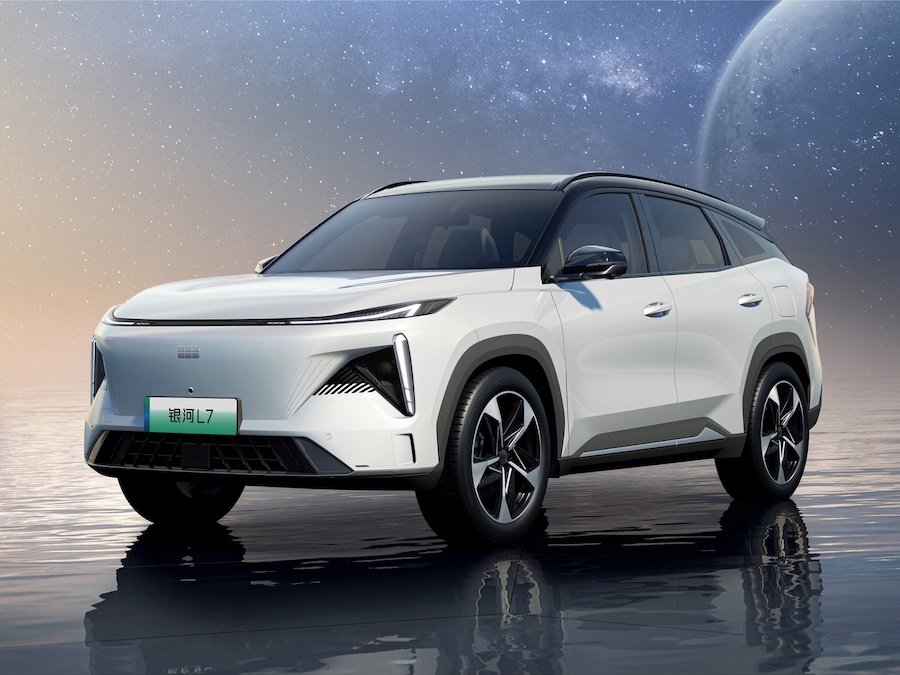Geely launches Galaxy sub-brand, promising seven cars by 2025

Geely has launched a new luxury sub-brand, Geely Galaxy, as a showcase of its latest technological advancements.
Galaxy, described by the Chinese giant as a “high-end electrified product series”, is planned to offer seven cars by 2025: four long-range hybrids and three EVs.
The first of them, the Galaxy L7, is a plug-in hybrid SUV scheduled to go on sale this summer. It will be followed by the L6 plug-in hybrid saloon in the autumn.
All Galaxy PHEVs will be based on the E-CMA platform, which Geely co-developed with Volvo and already underpins models including the Lynk&Co 01, Polestar 2 and Volvo XC40 Recharge.
The sub-brand's first EV, the Galaxy E8, will also go on sale before the end of the year. It will use what Geely has called a “dedicated smart electrified architecture”, expected to be derived from the firm’s SEA platform. The SEA underpins models as varied as the Lotus Eletre, Smart #1 and Zeekr 001.
The E8 is likely to be the model previewed by the Galaxy Light concept: a sleek fastback similar in profile to the Porsche Taycan, featuring a tech-laden interior and rear-hinged and butterfly doors.
Geely also detailed a variety of new technologies: the Aegis battery safety system, Nordthor 8848 hybrid powertrain and Galaxy N-Operating System software.
Aegis is claimed to offer the highest level of user protection throughout its lifespan, protecting against direct impacts in crashes and predicting thermal runaway – when the battery generates more heat than it can dissipate. Aegis can increase battery life by 20%, according to Geely.
The Nordthor powertrain uses a predictive energy management system to improve fuel economy by up to 15%, giving the Galaxy L7 a claimed fuel economy of 54mpg.
Supporting these technologies will be the new operating system, which uses a Qualcomm Snapdragon 8155 chip to connect the car to Geely’s satellite network and perform cloud computing operations. That network – using 72 satellites – is expected to be launched by 2025.
Geely is yet to announce whether Galaxy cars will be sold outside China. Any such plans would likely be actioned around the middle of the decade, following Lynk&Co’s UK launch in 2024.
Related News
